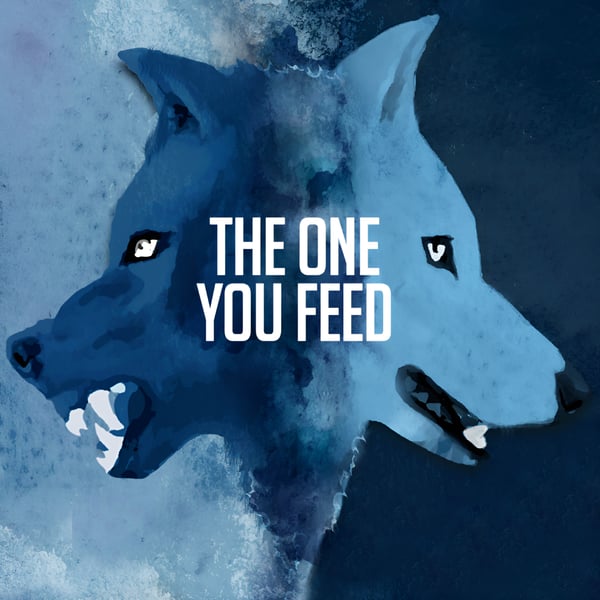Edward Slingerland
The One You Feed
Eric Zimmer
4.6 • 2.5K Ratings
🗓️ 5 May 2015
⏱️ 44 minutes
🧾️ Download transcript
Summary
Edward Slingerland is a Professor of Asian Studies and Canada Research Chair in Chinese Thought and Embodied Cognition at the University of British Columbia, and was educated at Princeton, Stanford and the University of California, Berkeley. His areas of specialty include Chinese thought, comparative religion, cognitive science, and the relationship between the sciences and the humanities. In addition to over twenty academic journal articles in a range of fields, he has written several scholarly books, including What Science Offers the Humanities and a translation of the Analects of Confucius. His first book for a popular audience is called Trying Not to Try: Ancient China, Modern Science, and the Power of Spontaneity
In This Interview Ted and I Discuss...
The One You Feed parable.
Trying not to try.
The tension of trying to relax.
The conscious mind vs the unconscious mind.
The ancient secrets of Wu Wei.
For more show notes visit our website
Some of our most popular interviews that you might also enjoy:
Dan Harris
Maria Popova
Todd Henry- author of Die Empty
Randy Scott Hyde
See omnystudio.com/listener for privacy information.
Transcript
Click on a timestamp to play from that location
| 0:00.0 | When you're trying to relax or you're trying to be happy and not think about things, |
| 0:05.2 | the part of the brain you're trying to shut down is the part you're using to do the shutting down. |
| 0:18.0 | Welcome to the One You Feed. |
| 0:20.1 | Throughout time, great thinkers have recognized the importance of the thoughts we have, |
| 0:24.7 | quotes like garbage in, garbage out, or you are what you think, ring true. And yet, for many of us, |
| 0:31.7 | our thoughts don't strengthen or empower us. We tend toward negativity, self-pity, jealousy, |
| 0:38.1 | or fear. We see what we don't have, instead of what we do, we think things that hold us back and |
| 0:44.0 | dampen our spirit. But it's not just about thinking, our actions matter. It takes conscious, |
| 0:50.1 | consistent and creative effort to make a life worth living. This podcast is about how other people |
| 0:55.9 | keep themselves moving in the right direction, how they feed their good wolf. |
| 1:12.3 | Hi, it's Elvis Jaran on my new podcast, Thinking Out Loud with Elvis Jaran. I'll be bringing you |
| 1:17.9 | candid and maybe sometimes a little crazy interviews with people from all walks of life. We'll touch |
| 1:22.5 | on subjects that you just can't talk about on the radio, like life, love, success, failure, |
| 1:27.1 | whatever else comes to mind, but all jacked up because after being in this business for as long as I |
| 1:31.7 | have, I want to get to the bottom of what makes people tick. Now listen to my new podcast, Thinking Out Loud |
| 1:37.7 | on the iHeartRadio app, Apple Podcasts, or wherever you get your podcasts. |
| 1:42.4 | Thanks for joining us. Our guest today is Edward Slingerland, Research Chair in Chinese Thought and |
| 1:50.4 | Embodied Cognition at the University of British Columbia. Edward is also the Director of Cultural |
| 1:56.0 | Evolution of Religion Research Consortium, aka Cirque, and the Co-Director for the Center of Human |
| 2:02.4 | Evolution, Cognition and Culture. His new book is Trying Not to Try, the Art of Science and Spontanady. |
| 2:10.0 | Here's the interviewer. Hi Ted, welcome to the show. Hi, thanks for having me. |
| 2:13.6 | Yeah, I'm happy to have you on your book, Trying Not to Try, Ancient China, Modern Science, and the |
... |
Please login to see the full transcript.
Disclaimer: The podcast and artwork embedded on this page are from Eric Zimmer, and are the property of its owner and not affiliated with or endorsed by Tapesearch.
Generated transcripts are the property of Eric Zimmer and are distributed freely under the Fair Use doctrine. Transcripts generated by Tapesearch are not guaranteed to be accurate.
Copyright © Tapesearch 2025.

